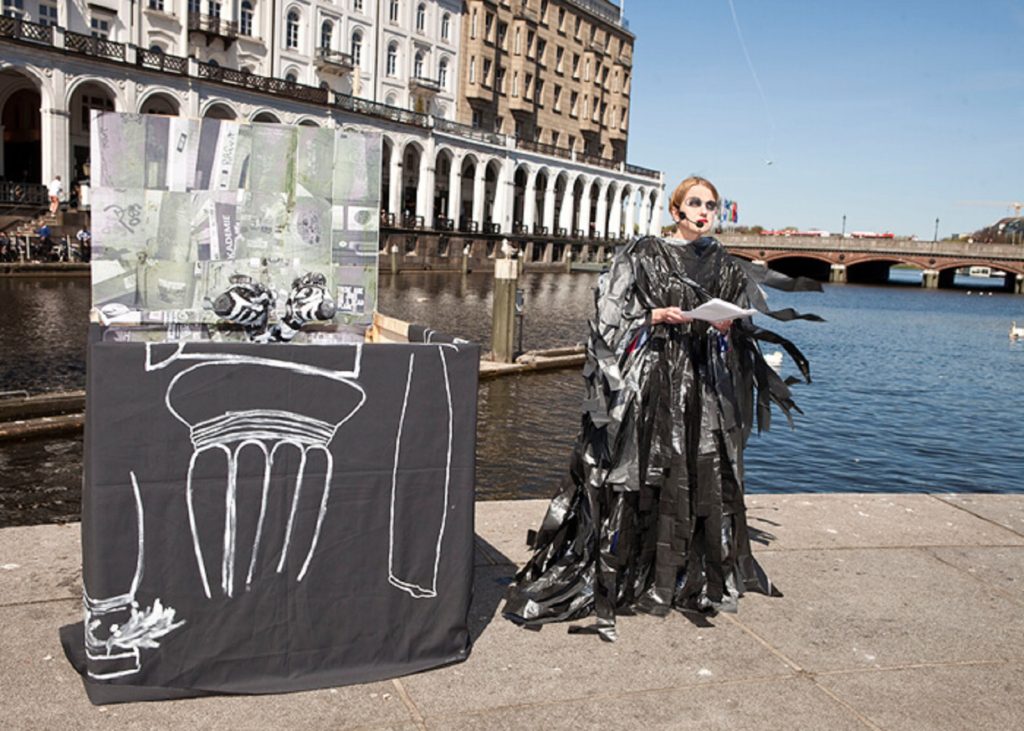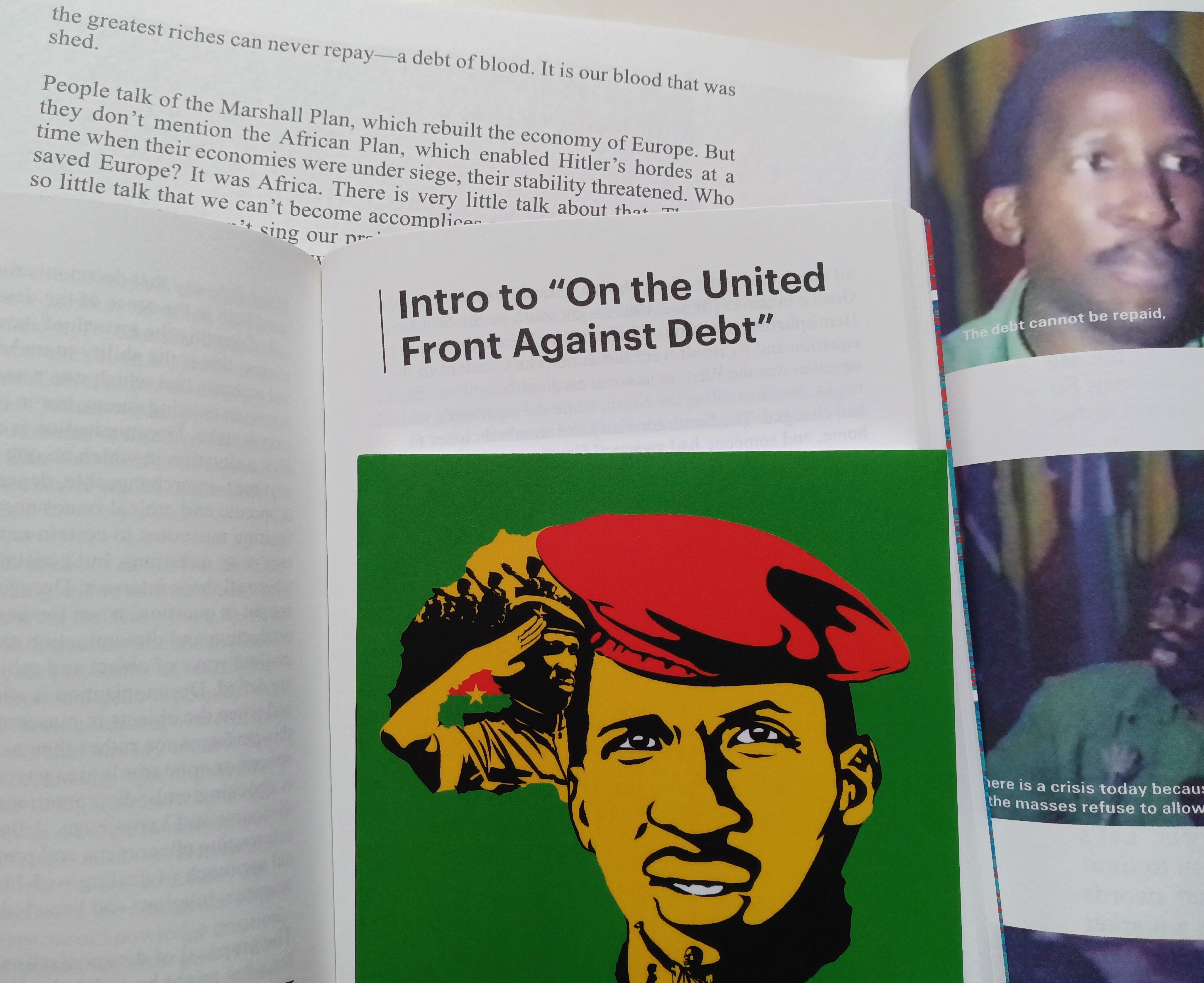Tracey Rose, “…don’t shoot the messenger!” Mnemosyne defends Mercury , 2016. What Time Is It on the Clock of the World*, Stadtkuratorin Hamburg, Photo: Frank Egel B: People talk of the Marshall Plan, which rebuilt the economy of Europe. But they don’t ! !
mention the African Plan, which enabled Hitler’s hordes at a time when their economies !!
were under siege, their stability threatened.
Who saved Europe? It was Africa.
There is very little talk about that. There is so little talk that we can’t become accomplices
ourselves,
of this ungrateful silence.
What’s more, the popular masses of Europe are not opposed to the popular masses of ! !
Africa. Those who want to exploit Africa are the same ones as those who exploit Europe.
We have a common enemy.
We can’t accept their morals.
We can’t accept their taking to us about dignity.
We can’t accept their talking to us about merits of those who pay and about a loss of
confidence in those who don’t pay. On the contrary, we must explain that it’s normal these
days to favour the view that the richest people are the biggest thieves.
A poor man who steals commits no more than larceny, a petty crime, just to survive, out of
necessity. The rich are the ones who rob the tax revenue and customs duties. They are the
ones who exploit the people.
PAUSE
From the script of Tracey Rose, “…don’t shoot the messenger!” Mnemosyne defends Mercury , 2016 People talk of the Marshall Plan, which rebuilt the economy of Europe. But they don’t mention the African Plan, which enabled Hitler’s hordes at a time when their economies were under siege, their stability threatened. Who saved Europe? It was Africa. There is very little talk about that. There is so little talk that we can’t become accomplices ourselves of this ungrateful silence. If others can’t sing our praise, we have the duty, at the very least, to point out that our fathers were courageous and that our veteran fighter saved Europe and ultimately allowed the world to rid itself of Nazism.
The debt is also a product of confrontations. When people talk to us today about economic crisis, they forget to mention that the crisis didn’t appear overnight. It has been with us for a long time, and it will deepen more and more as the popular masses become increasingly aware of their rights in face of the exploiters.
There is a crisis today because the masses refuse to allow wealth to be concentrated in the hands of a few individuals. There is a crisis because a few individuals hold colossal sums of money in foreign banks—enough to develop Africa. There is a crisis because in face of these individual fortunes, whose owners we can name, the popular masses refuse to live in ghettos and slums. There is a crisis because people everywhere refuse to stay in Soweto when Johannesburg is directly opposite to them. That is, there is a struggle, and the deepening of this struggle leads to worries among the holders of financial power.
They ask us today to collaborate in the search for stability. Stability to the benefit of the holders of financial power. Stability to the detriment of the popular masses. No, we can’t be accomplices of this. No, we can’t go along with those who suck the blood of our peoples and who live off the sweat of our peoples. We can’t go along with their murderous ventures.
Thomas Sankara “A United Front Against Debt” (1987), reprinted with an introduction by Bonaventure Soh Bejeng Ndikung in “South as a State of Mind, documenta 14, #1 2015 Fall/Winter, pp. 190-195.

